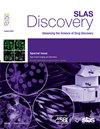A scalable human gut-immune co-culture model for evaluating inflammatory bowel disease anti-inflammatory therapies
IF 2.7
4区 生物学
Q2 BIOCHEMICAL RESEARCH METHODS
引用次数: 0
Abstract
Current treatments for inflammatory bowel disease (IBD) are often ineffective long-term, as many patients ultimately become unresponsive to anti-inflammatory drugs. The need for improved therapeutics is urgent. Animal models utilized for drug development are limited by interspecies variability and poor translatability. However, most in vitro models lack the sophistication to model the key interplay of the immune system with the intestinal epithelium in line with the known role of the immune system in the etiology of the disease.
To address this gap, we developed a primary intestinal epithelial cell co-culture system to incorporate elements of innate immune signaling. This system models immune-epithelial interactions using RepliGutⓇ - Planar Transverse Colon cultured on a Transwell™ system with THP-1 derived macrophages in a receiver compartment of a 96-well plate format, compatible with high-throughput screening (HTS) workflows. Epithelial barrier integrity and cell viability were maintained in co-culture with unstimulated macrophages. However, similar to the pathology associated with IBD, epithelial integrity was compromised in co-culture with LPS + IFN-γ pre-stimulated macrophages as evidenced by declining TEER and cell viability and increased inflammatory cytokine release. Cotreatment with anti-inflammatory IBD therapeutics adalimumab or tofacitinib mitigated these effects, demonstrating the model’s ability to replicate key inflammatory responses and prevention.
Reproducibility and scalability of the model system further position the model for screening and/or mechanistic interrogation of anti-inflammatory drugs, improving drug discovery, and accelerating the translation of new IBD therapies into clinical practice.

评估炎症性肠病抗炎治疗的可扩展人类肠道免疫共培养模型。
目前对炎症性肠病(IBD)的治疗通常是长期无效的,因为许多患者最终对消炎药没有反应。迫切需要改进治疗方法。用于药物开发的动物模型受到物种间可变性和可翻译性差的限制。然而,大多数体外模型缺乏复杂性来模拟免疫系统与肠上皮的关键相互作用,以符合免疫系统在疾病病因学中的已知作用。为了解决这一空白,我们开发了一个原代肠上皮细胞共培养系统,以纳入先天免疫信号的元素。该系统使用在Transwell™系统上培养的RepliGut®- Planar横结肠,在96孔板格式的受体室中培养THP-1衍生巨噬细胞,模拟免疫-上皮相互作用,与高通量筛选(HTS)工作流程兼容。上皮屏障的完整性和细胞活力与未刺激的巨噬细胞共培养。然而,与IBD相关的病理类似,与LPS + IFN-γ预刺激的巨噬细胞共培养时,上皮完整性受到损害,TEER和细胞活力下降,炎症细胞因子释放增加。与抗炎IBD治疗药物阿达木单抗或托法替尼联合治疗减轻了这些影响,证明了该模型复制关键炎症反应和预防的能力。该模型系统的可重复性和可扩展性进一步为抗炎药物的筛选和/或机制询问奠定了基础,改善了药物发现,并加速了新的IBD治疗方法转化为临床实践。
本文章由计算机程序翻译,如有差异,请以英文原文为准。
求助全文
约1分钟内获得全文
求助全文
来源期刊

SLAS Discovery
Chemistry-Analytical Chemistry
CiteScore
7.00
自引率
3.20%
发文量
58
审稿时长
39 days
期刊介绍:
Advancing Life Sciences R&D: SLAS Discovery reports how scientists develop and utilize novel technologies and/or approaches to provide and characterize chemical and biological tools to understand and treat human disease.
SLAS Discovery is a peer-reviewed journal that publishes scientific reports that enable and improve target validation, evaluate current drug discovery technologies, provide novel research tools, and incorporate research approaches that enhance depth of knowledge and drug discovery success.
SLAS Discovery emphasizes scientific and technical advances in target identification/validation (including chemical probes, RNA silencing, gene editing technologies); biomarker discovery; assay development; virtual, medium- or high-throughput screening (biochemical and biological, biophysical, phenotypic, toxicological, ADME); lead generation/optimization; chemical biology; and informatics (data analysis, image analysis, statistics, bio- and chemo-informatics). Review articles on target biology, new paradigms in drug discovery and advances in drug discovery technologies.
SLAS Discovery is of particular interest to those involved in analytical chemistry, applied microbiology, automation, biochemistry, bioengineering, biomedical optics, biotechnology, bioinformatics, cell biology, DNA science and technology, genetics, information technology, medicinal chemistry, molecular biology, natural products chemistry, organic chemistry, pharmacology, spectroscopy, and toxicology.
SLAS Discovery is a member of the Committee on Publication Ethics (COPE) and was published previously (1996-2016) as the Journal of Biomolecular Screening (JBS).
 求助内容:
求助内容: 应助结果提醒方式:
应助结果提醒方式:


